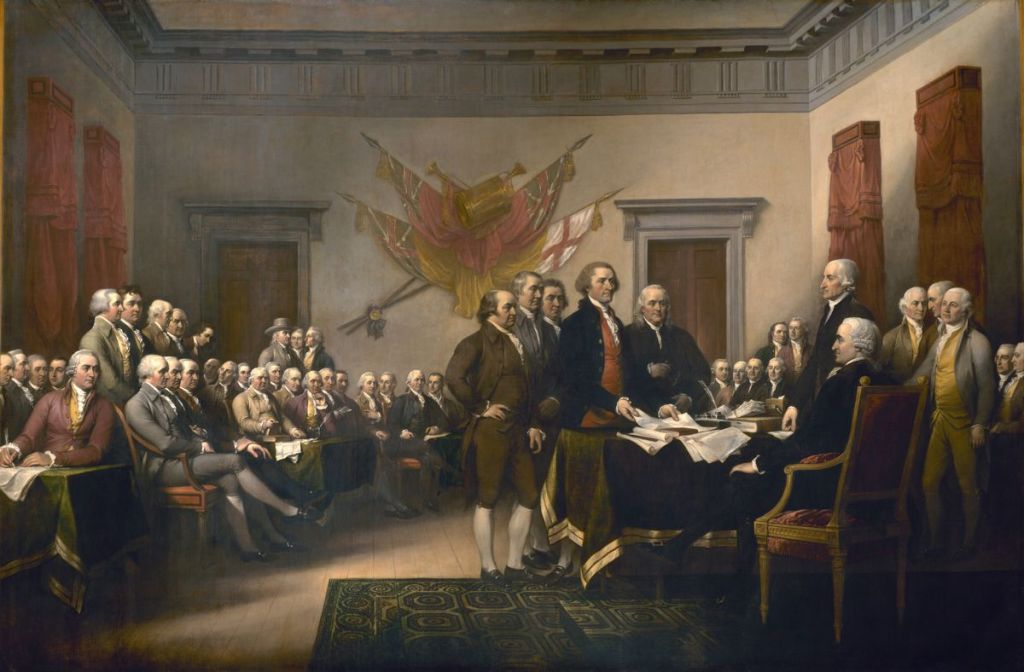The Enlightenment was an intellectual movement that became popular in the 18th century, known as the “Century of Enlightenment”.
Emerged in France, the main characteristic of this current of thought was to defend the use of reason over faith to understand and solve society’s problems.
Summary on Enlightenment
Enlightenmentists believed they could restructure Old Regime society. They defended the power of reason above faith and religion and sought to extend rational criticism into all fields of human knowledge.
Through the union of philosophical, social and political schools of thought, they emphasized the defense of rational knowledge to deconstruct prejudices and religious ideologies.
In turn, these would be overcome by the ideas of progress and human perfectibility.
In their works, Enlightenment thinkers argued against mercantilist and religious determinations .
They were also averse to absolutism and the privileges given to the nobility and clergy. These ideas were considered controversial, as this shook the foundations of the political and social structure of the Old Regime.
In this way, philosophers such as Diderot and D’Alembert sought to gather all the knowledge produced in the light of reason in a compendium divided into 35 volumes: the Encyclopedia (1751-1780).
The publication of the Encyclopedia had the participation of several Enlightenment exponents such as Montesquieu and Jean-Jacques Rousseau.
His ideas spread mainly among the bourgeoisie, which held most of the economic power. However, they had nothing equivalent in political power and were always on the margins of decisions.
Characteristics of the Enlightenment
The Enlightenment rejected the medieval heritage and, therefore, began to call this period the “Dark Ages”. It was these thinkers who invented the idea that nothing good had happened in this era.
Let us see, below, the main Enlightenment ideas on economics, politics and religion.
Economy
In opposition to Mercantilism , practiced during the Old Regime, the Enlightenment argued that the State should practice liberalism. Rather than intervening in the economy, the state should let the market regulate it. These ideas were expounded mainly by Adam Smith.
Some, like Quesnay, argued that agriculture was the nation’s source of wealth, to the detriment of trade, as advocated by the mercantilists.
As for private property, there was no consensus among the Enlightenment. John Locke emphasized that property was a natural right of man, while Rousseau pointed out that this was the reason for the evils of humanity.
Politics and Society
Contrary to Absolutism , the Enlightenment argued that the king’s power should be limited by a council or a constitution.
The writer Montesquieu, for example, defended a state model where the government would be divided into three powers:
- Legislative
- Executive
- Judiciary.
Thus, there would be balance and less power concentrated in one person. This idea of government has been adopted by almost every country in the western world.
Likewise, subjects should have more rights and be treated equally. This meant that everyone should pay taxes and minorities, such as Jews, had to be recognized as full citizens.
It must be remembered that in the Old Regime, religious minorities, such as Jews and Muslims, were forced to convert or leave the countries where they were to escape persecution.
Although there were some pro-women voices and even Enlightenment thinkers such as Émilie du Châtelet or Mary Wollstonecraft, no man really advocated granting women rights.
Religion
Religion was heavily criticized by a number of Enlightenment thinkers.
The majority advocated limiting the privileges of the Clergy and the Church, as well as using science to question religious doctrines.
There were those who understood the power of religion in the formation of human beings, but preferred that there were two distinct spheres: religion and the State.
Likewise, some illuminists defended the end of the church as an institution and that faith should be an individual expression.
Major Enlightenment thinkers
Below are the main Enlightenment philosophers :
- Montesquieu (1689-1755)
- Voltaire (1694-1778)
- Diderot (1713-1784)
- D’Alembert (1717-1783)
- Rousseau (1712-1778)
- John Locke (1632-1704)
- Adam Smith (1723-1790)
The Informant
MORE ABOUT HISTORY CONTENT FOR YOUR STUDIES





Leave a comment